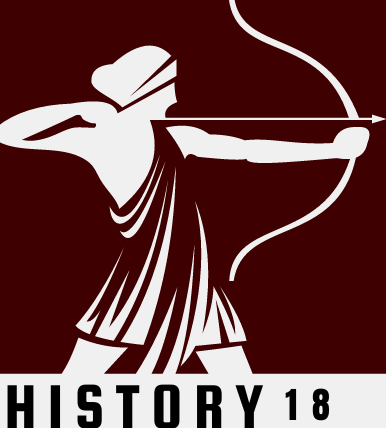The myth surrounding Medusa’s origins is indeed complex, with conflicting details. Nevertheless, the most popular version of the story suggests that she incurred the wrath of the goddess Athena after being impregnated by Poseidon while serving as a priestess in Athena’s temple. This transgression led to Athena’s furious expulsion of Medusa from the sacred temple, cursing and condemning her to exile on the remote island of Sarpedon.

The tale continues with the unusual birth of Medusa’s children. Despite her demise at the hands of Perseus, Medusa remained pregnant with the progeny of Poseidon. In a macabre twist, upon her beheading by Perseus, her lifeless body served as the vessel for the miraculous birth of her two children as her blood touched the ground. Emerging into the mortal realm, these children were none other than the formidable giant Chrysaor and the majestic winged horse Pegasus.
Pegasus
Pegasus, the immortal winged horse of Greek mythology, is an iconic figure whose origins are steeped in wonder and legend. Born from the severed neck of the Gorgon Medusa after her beheading by Perseus, Pegasus and his brother Chrysaor emerged in a miraculous and otherworldly manner.
Zeus, the supreme ruler of Mount Olympus, claimed him. Under Zeus’s divine command, Pegasus was bestowed with the extraordinary duty of drawing the chariot that wielded thunderbolts, symbolizing his pivotal role in the celestial realm.
Notably, Pegasus was more than just a heavenly creature; he was closely associated with water. His name is believed to have originated from “pegae,” the Greek word for springs, signifying his birth near the springs of the Ocean. Pegasus shared a unique ability with his father, Poseidon, enabling him to conjure water sources wherever he struck his hoof.
The Myth of Pegasus and Bellerophontes
The myth of Pegasus and Bellerophontes delves into themes of betrayal, loyalty, dreams, and unexpected twists of fate. Pegasus, the winged horse born from Medusa’s blood, was entrusted to the Muses by Athena. Bellerophontes, a Corinthian youth with aspirations of possessing Pegasus, embarks on a fateful journey. Although believed to be the son of King Glaucus, rumors suggest Poseidon as his true father, connecting him and Pegasus as potential half-brothers.
While Pegasus dwells peacefully with the Muses, Bellerophontes seeks adventure and encounters Proteus, who betrays him by sending him to Lycia with a sealed letter requesting his death. In Lycia, Bellerophontes learns of the terrorizing Chimera and accepts the daunting task of slaying it. To achieve this, he seeks the wisdom of Polyeidos and, in some versions, Goddess Athena provides the means to capture Pegasus.
With Athena’s guidance, Bellerophontes tames Pegasus and rides him to defeat the Chimera, becoming a hero. He marries the King’s daughter and eventually succeeds the throne. However, Bellerophontes’ insatiable thirst for adventure leads him to Mount Olympus, angering Zeus. A sting from a gadfly sent by Zeus causes Bellerophontes to fall from Pegasus. Athena saves him, but he spends his life searching for his loyal companion.
In the end, Pegasus remains with Zeus on Mount Olympus, showcasing unwavering loyalty to the gods. This myth intertwines elements of ambition, treachery, courage, and the consequences of daring to reach the heights of Olympus.
Chrysaor
Chrysaor, the lesser-known offspring of the Gorgon Medusa was born from her beheaded body in a manner as mysterious as his own identity. He is often depicted as either a giant human or a winged boar, bearing a name that translates to “bearer of the golden sword.” Some sources depict him as a brave warrior.
The enigmatic nature of Chrysaor is compounded by his absence from most myths, possibly due to the location of Geryon’s kingdom, Erytheia, which was situated in Southern Iberia. Additionally, some interpretations propose that the reference to the “golden sword” may symbolize wheat rather than a literal sword, given Chrysaor’s kingdom’s reputation for wheat production.
Chrysaor ascended to the throne as the king of Iberia and entered into matrimony with Callirrhoe, an Oceanid and the daughter of the Titan Oceanus. However, Chrysaor remains a relatively obscure figure in Greek mythology, primarily appearing in a significant myth as the father of the three-headed giant Geryon.
In the tale of Heracles (Hercules), the hero’s tenth labor involved retrieving the cattle of Geryon, which he accomplished by slaying the giant with a poisoned arrow. Hesiod’s theogony identifies Geryon as the son of Chrysaor. Some interpretations suggest that Geryon wasn’t a three-headed giant but rather represented three distinct sons of Chrysaor working in unison. This interpretation emerged as people sought to rationalize the myth.
Conclusion
In conclusion, the myth of Medusa and her descendants, Pegasus and Chrysaor, is a tapestry of intrigue, divine retribution, and extraordinary births. Medusa’s tragic tale began with her defilement by Poseidon in Athena’s temple, resulting in her banishment to the desolate island of Sarpedon.
Medusa’s gruesome end gave rise to two exceptional offspring, each with a unique destiny. Pegasus, the immortal winged horse, emerged from her severed neck, bearing the divine task of drawing Zeus’s thunderbolt-wielding chariot.
Bellerophontes, the Corinthian adventurer, tamed Pegasus with Athena’s aid, and together, they vanquished the monstrous Chimera. Bellerophontes’ audacious ascent to Mount Olympus brought about his fall, but Pegasus remained, loyal to the gods.
Also Read: The Children of Hades: Did Hades Have Children in Greek Myth
